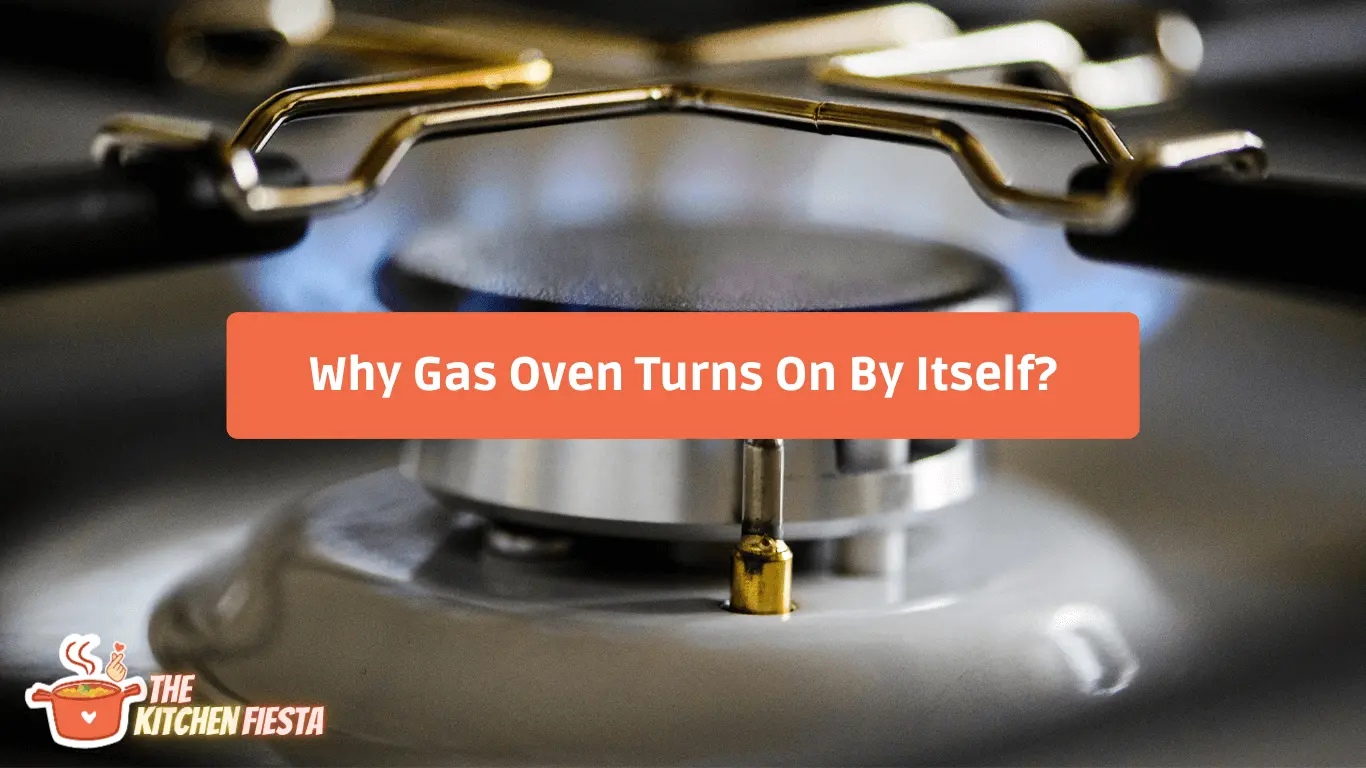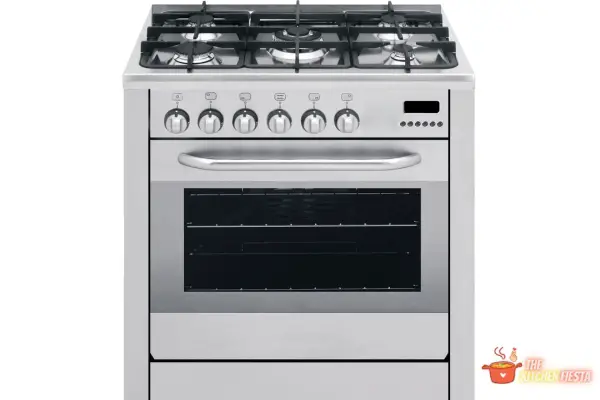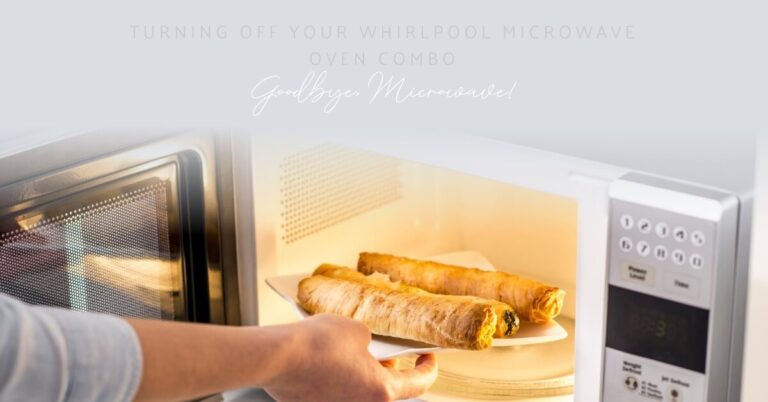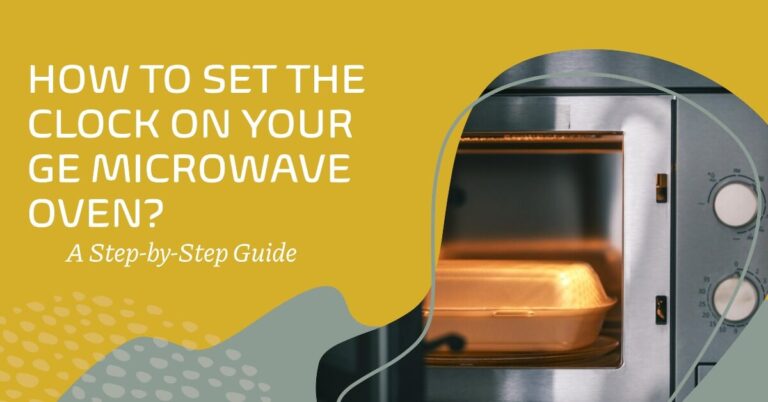Gas Oven Turns On By Itself? Reasons & Fixes

It can be unsettling and dangerous when your gas oven appears to turn itself on inexplicably. You may catch a whiff of gas, hear the oven igniter sparking, or see the oven glowing hot without ever having turned it on.
This troubling oven behavior likely signals an underlying malfunction.
In this comprehensive guide, we’ll cover:
- Common causes of gas ovens activating spontaneously
- Step-by-step troubleshooting tips
- When professional repairs are needed
- How to prevent future unexpected oven ignitions
- Safety precautions and when to stop using a malfunctioning oven
Knowing what’s making your oven turn itself on and how to properly address it will help you resolve the issue, restore normal operation, and keep your kitchen safe.
Is It Normal For Oven To Turn On By Itself?
No, it is definitely not normal for your oven to spontaneously turn on without you actively engaging the controls. An oven that activates on its own indicates some type of electrical or mechanical malfunction.
Ovens are designed to only heat up when specifically prompted by pressing buttons or turning dials on the control panel. They should remain inert otherwise.
If your oven is consistently heating up mysteriously without any commands, this points to an underlying issue that needs to be addressed for safety.
Potential causes include faulty internal components like bad sensors or relays, damaged wiring creating shorts, and expired control boards among other issues.
The problem will only worsen if left unresolved. Troubleshoot the specific malfunction before continuing to use the oven. Professional repairs may be required to get it working properly again.
But ovens activating randomly is never normal behavior. Take caution and promptly investigate what’s making yours turn on inexplicably.
What Triggers Gas Ovens to Ignite Seemingly On Their Own?
Modern gas ovens rely on multiple electronic components working together to function properly. From electronic control boards to temperature sensors, each part plays a role in regulating oven operations.
If one of these components fails or malfunctions, it can mistakenly trigger the oven to heat up as if prompted to.
Here are the most common culprits behind gas ovens activating unexpectedly:
Faulty Thermostat or Temperature Sensor
Thermostats and temperature sensors monitor oven interior temperature. They communicate this data to the control board.
A problematic sensor can inaccurately indicate the oven needs heating, causing the control board to activate the igniter and gas valves to turn the oven on.
Damaged Control Board
The electronic control board is the oven’s computerized “brain”. It processes data from components like the thermostat and controls oven functions accordingly.
If damaged – due to an electrical surge or mechanical failure – the board could activate oven heating at random intervals, despite no commands to do so.
Loose Wire Connections
Electrical current passes through wiring to connect oven components.
Over time, vibrations during oven operation can loosen wire connections. These loose wires are prone to short circuiting that can erroneously trigger oven functions, including ignition.
Faulty Igniter
The igniter uses an electrical spark to light the oven’s gas burners.
Cracked or corroded igniters can malfunction and spark without being prompted to, unintentionally igniting the gas and turning the oven on.
Gas Leaks
Gas leaks allow fuel to escape from the gas line or oven burner feed.
The leaked gas can ignite when accidentally exposed to another ignition source, making it seem like the oven turned itself on.
Frayed Power Cord
Fraying or cracking in the oven’s power cord can expose wires. This can lead to hazardous shorts and arcing that engages oven components, including the igniter.
By understanding the inner workings of your gas oven, you can better pinpoint what issue is making it activate spontaneously.
Do Gas Ovens Turn Off Automatically?
Yes, modern gas ovens are designed to automatically shut off after reaching set temperatures or timer limits. This is an important safety feature.
Gas ovens utilize electronic control boards along with sensors to monitor operating conditions. Once heating goals are achieved, the oven will cut gas flow to the burners.
Many ovens also have fail safe mechanisms that will automatically cut off gas if temperatures exceed thresholds indicating something is wrong. This prevents accidental fires or explosions.
However, malfunctions can sometimes disrupt an oven’s ability to turn off. Issues like stuck relays, faulty sensors, and bad control boards could all cause an oven to stay on.
If your gas oven is not turning off on its own, it likely has a defect that needs repairing by a professional for safe functionality. Don’t override or tamper with automatic shut-off capabilities.
When functioning normally, modern safety features make gas ovens turn off automatically at the right times to prevent dangerous overheating. But malfunctions can disrupt this, requiring swift troubleshooting.
Step-by-Step Troubleshooting for Self-Activating Ovens
When your oven mysteriously switches on, resist the urge to keep using it until the underlying problem is found and fixed.

Troubleshoot your oven methodically and safely with these tips:
Visually Inspect the Oven
Before doing anything else, unplug the oven. Then examine the outside and inside for any visible issues:
- Cracked or damaged control panel
- Burn or scorch marks indicating an electrical short
- Loose wires or connectors
- Signs of critters or nests that could obstruct components
Make note of any visible red flags. Physical damage provides clues to what’s malfunctioning internally.
Check Oven Smells
When the oven activates mysteriously, take a sniff near the appliance. Strong gas odors indicate a dangerous leak as the possible cause.
No gas smell may point to an electrical rather than gas issue. Trust your nose for helpful diagnostic clues.
Inspect the Interior Temperature Sensor
The oven temperature sensor is typically a long metal rod along the oven’s rear wall. Make sure the oven is unplugged, then remove the sensor from its wiring harness.
Examine it for damage and use a multimeter to test its electrical resistance. Compare readings to manufacturer specifications. If results are off, replace the faulty sensor.
Test the Electronic Control Board
The main control board can fail in ways that randomly activate oven functions.
To test it, unplug the oven and remove the front control panel. Carefully disconnect the control board wiring. Check the board for visible burns or damaged components indicating a short.
Use a multimeter to check for electrical continuity across circuits. If the board seems defective, replacement is likely your solution.
Check Wire Connections
Loose wiring is a leading cause of electrical shorts that can mistakenly engage oven systems.
Thoroughly inspect connections on oven components like the temperature sensor, igniter, control board, and valves. Tighten any loose wires and restore proper connectivity.
Inspect the Igniter
Remove the oven igniter and examine it closely for cracks or heavy corrosion which can cause malfunctions.
Use a multimeter to check igniter resistance. Consult manufacturer specs but typical readings should be between 40-140 ohms. If results are far outside this, replace the faulty igniter.
Monitor for Gas Leaks
If you detect the smell of natural gas when the oven activates unexpectedly, shut off the gas valve to the oven immediately. Don’t operate any electrical devices which could ignite the gas.
Check oven gas lines and connections by brushing or spraying soapy water and looking for bubble formation indicating leaks. Call the gas company to detect and resolve any hazardous leaks.
Examine Power Cord
Age, friction, and heat can cause oven power cords to crack or fray, exposing wires.
Carefully inspect the entire cord for wear and tear. Pay particular attention to contact points behind the oven. If the insulation is compromised, replace the cord to prevent shorts.
Investigate Nearby Appliances
In rare cases, a nearby appliance like a refrigerator or furnace with electrical issues can interfere with oven wiring and inadvertently activate it.
Unplug all appliances sharing the oven’s circuit one-by-one to isolate any causing interference. Consider re-routing plugs so the oven is on its own dedicated line.
By methodically working through these troubleshooting steps, you should be able to discover what’s causing your oven to mistakenly switch on.
When Professional Repairs are Needed?
DIY troubleshooting can solve many oven malfunctions. However, there are some scenarios where it’s safest to call an appliance repair technician:
- You smell gas but can’t find a leak source.
- The oven won’t turn off after ignition.
- Problems persist after DIY repairs.
- The oven is over 10 years old.
- You’re uncomfortable doing electrical repairs.
With professional diagnostic tools and know-how, technicians can quickly get to the bottom of your oven’s issue and make needed fixes.
Find a reputable local appliance repair company with background servicing gas ovens. Describe the problem in detail before making a service appointment.
While DIY repairs may seem like a money saver, incorrectly tampering with a gas oven can have disastrous results. Don’t take risks with your safety.
How to Stop Repeat Unwanted Oven Ignitions?
Once you’ve solved the immediate problem behind your oven activating spontaneously, take steps to prevent it recurring:
- Use a power surge protector. Surges from the electrical grid can damage oven components over time. Plug the oven into a surge protector to regulate power flow.
- Regularly clean your oven. Built-up grease and food debris can obstruct sensors and ignite. Follow manufacturer cleaning directions to keep oven surfaces and parts clear.
- Inspect wiring connections. Check wires to oven parts for tightness to avoid loose connections sparking activation.
- Consider replacing older ovens over 10-15 years old. Components degrade with extensive use making unprompted ignition more likely. Newer oven technology is also safer and more energy efficient.
- Don’t attempt complicated DIY electrical repairs unless you have training and are truly comfortable doing them safely. Making errors can worsen problems.
When to Stop Using a Malfunctioning Oven?
A gas oven that repeatedly activates spontaneously or exhibits other abnormal behaviors can dangerously malfunction at any time.
You should immediately stop using your oven if:
- Strong gas smell from leaks you can’t locate.
- The oven won’t turn off after ignition.
- Problems continue despite repairs.
- The oven is old and parts are obsolete.
- You’re unsure of the root cause.
Continuing to use a potentially hazardous oven risks fire, explosion, or carbon monoxide poisoning. It’s not worth the risk to yourself and your home.
Rely on alternative cooking methods like microwave, grill, or take-out until the oven can be properly repaired or replaced entirely. Safety first.
Key Takeaways on Oven Malfunctions
Dealing with an oven that seems to switch on by itself can be unnerving but there are steps you can take to get the appliance safely back to normal:
- Thoroughly inspect all oven parts to isolate the problem component.
- Check for gas leaks, electrical shorts, and physical damage.
- Consider hiring a professional for complicated diagnostics and repairs.
- Prevent future issues through surge protectors, cleaning, and component upgrades.
- Stop using the oven immediately if it poses serious safety hazards you can’t resolve.
While an oven igniting on its own can seem like a ghost in the machine, there’s always a real culprit behind the problem if you investigate carefully. With diligent troubleshooting and swift repairs, you can comfortably get back to baking.





